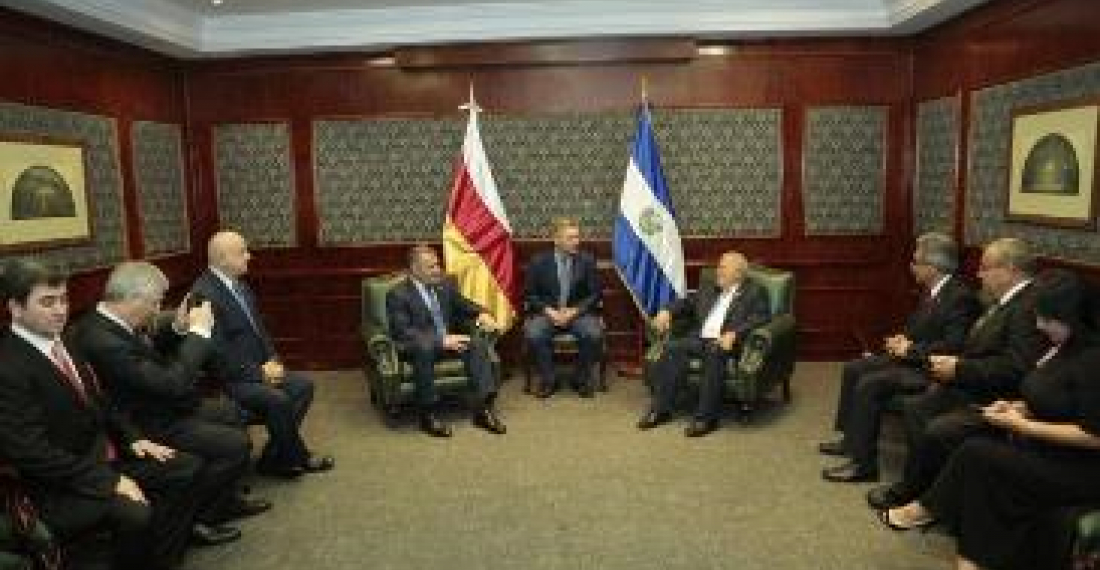Latin America continues to provide headaches to the Georgian government. The presence of the leaders of the breakaway regions of Abkhazia and South Ossetia, Rauf Khajimba and Anatoli Bibilov, at the inauguration of the Venezuelan president Nicolas Maduro in Caracas on Thursday, has been very negatively assessed in Tbilisi. Venezuela is one of a handful of countries that have joined Russia in recognising Abkhazia and South Ossetia as independent states. The rest of the international community still recognise the two territories as part of Georgia. Apart from Venezuela, another Latin American country, Nicaragua, has also extended similar recognition.
Now a new probelm appears. South Ossetian leader, Anatoli Bibilov, on Thuesday (10 January) met in Caracas with the president of El Salvador, Salvador Sanchez Ceren, who was also attending Maduro's inauguration. A website of the South Ossetia authorities said that the two "exchanged views on topical issues on the international agenda of mutual interest, and discussed the prospects for the establishment of bilateral relations and the potential for mutually beneficial cooperation". Ceren has been in office since 1 June 2014, after winning the 2014 presidential election as the candidate of the left-wing Farabundo Martí National Liberation Front (FMLN). He previously served as Vice President from 2009 to 2014. He was also a guerrilla leader in the Civil War and is the first ex-rebel to serve as president
On Thursday, the Georgian foreign ministry issued a toughly worded statement condemning the presence of the Abkhaz and South Ossetian leaders in Caracas, slamming the human rights record of the Venezulan government, and saying that the presence of the leaders of the separatists entities in Caracas "served the sole purpose of of legitimising the occupation of Abkhazia and Tskhinvali regions and the ethnic cleansing there". The statement said that the international community is united in supporting Georgia's sovereignty, territorial integrity and non-recognition policy of the occupied territories." The statement added that "the States that have any kind of contact with the illegal regimes in the occupied territories of Georgia violate fundamental norms and principles of international law that cause them to be condemned and bitterly criticised by the entire international community."
However the prospect that El Salvador may also be considering the recognition of the two entities, and the very fact that a meeting took place between the South Ossetian leadership and the president of El Salvador, no doubt causes concerns in Tbilisi that Russia may be pushing harder than before for its protectorates in the South Caucasus to gain international recognition. There has been no statement yet by the Georgian government on the meeting between Bibilov and Ceren.
source: Commonspace.eu
photo: The president of the de facto government of South Ossetia met the president of El Salvador in Caracas on 1o January 2019 (picture courtesy of www.mfa-rso.so)






